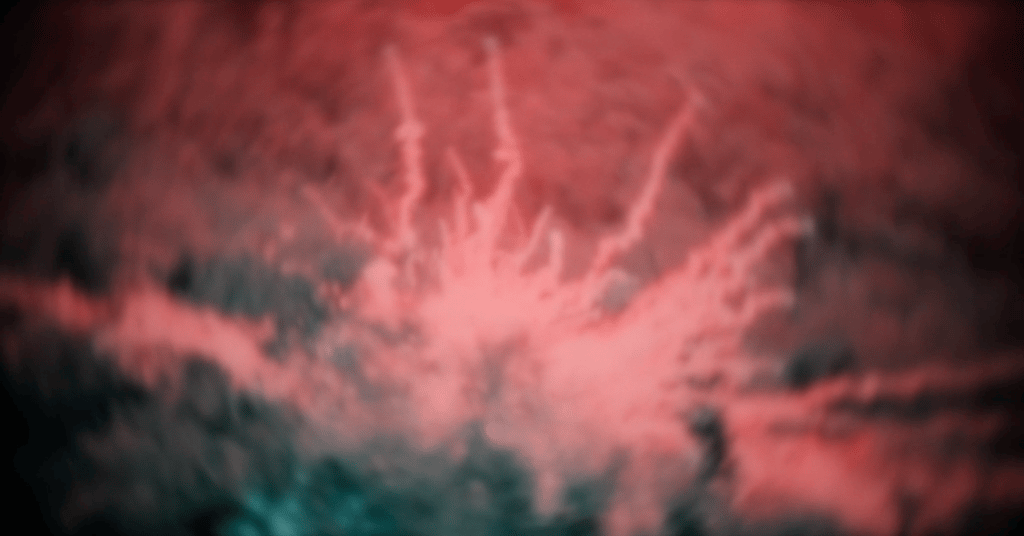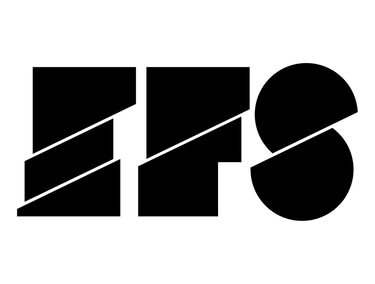Memory’s blood – On Elpis by Rouzbeh Rashidi
EFS PUBLICATIONSARTICLE
Nadin Mai
1/26/20243 min read


I remember … it was raining blood.
He had tears in his eyes. My grandfather sat in front of my camera. He had just turned ninety and spoke, with difficulty, about his experience as a soldier in World War II. He would die less than two years later, with a lighter conscience, perhaps, but with scars he could never conceal.
It was blood that I saw first in Rouzbeh Rashidi’s film Elpis (2023). It was an uncanny reality. The first nightmare I can remember was that of planes that would drop bombs on our city.
I was four years old.
I inherited my grandparents, my country’s bloody memories. They were inside me. It was at night that they took over the images, the phantoms.
They reemerged on the heels of viewing Rouzbeh Rashidi’s non-film Elpis, a collection of memories of dreams and nightmares. Inherited, experienced, imagined. Elpis is a form of consciousness, an alternate state, a traumatic remnant that seeks to come to terms with what has been and with what is today. Temporality is the core of our being on Earth.
War.
Back then and now.
Now and back then.
Trauma is cyclical. It always returns. It tears down a safety wall and creates an acute vulnerability for more trauma.
War and trauma never stop.
Iran. Iraq.
Germany. Estonia. Ireland.
We slowly get wounded, damaged and scarred. We heal to a degree, but we never fully recover.
The only response to trauma is to create. Create to survive, I wrote once in my notebook. Survive to create, create to survive.
Blurry and bathed in red, Rashidi’s mind-images become haptic the longer they last. Tank cannons, explosions, destruction — mind-images become wound images, traces that the Iranian director carries with him wherever he goes. Those images are like a backpack that, once shouldered, cannot be put down again.
Carrying this weight is different from seeing it, Elpis suggests. Seeing the weight is not seeing it. Seeing the weight is being blind to it. Seeing is aimed at externalisation, it is conscious, it is a matter of will. Remembering is an internal process of clashing memories that are as uncontrollable as they are painful. Closing one’s eyes doesn’t make the memories go away. It makes them stronger. This, too, is Elpis.
Memory is a destructive force; you must ruin your life to create this radioactive wasteland of material.
The high-pitched sound of a single bird, the concentration of peace and beauty. But it’s so quiet, so eerily quiet, that one cannot help but see in the bird’s melody a post-apocalyptical peace.
And then I hear my heart. The sound takes over my eyes. When Rashidi muffles the sound of artillery, my heart takes on the role of firing. It’s pounding, and when I close my eyes, I see nothing but destruction and ruins.
Trauma is History. Trauma always repeats itself.
So does History.
History of Europe. History of Denial.
Rashidi was three months old when the Iran-Iraq War broke out. He would spend his childhood in a war-torn country, still reeling from a revolution that had brought an end to the Shah’s rule in 1979. Iran was in major upheaval, and it seems as though Rashidi’s experience as a child comes full circle today.
Elpis, the spirit of hope, the last item that remained in Pandora’s box after all the evil, the conflict, and the devastation, had escaped from it and taken over Earth.
Elpis. Hope is what remains. Hope is what keeps us going in the face of History.
Walter Benjamin wrote:
This is how one pictures the angel of history. His face is turned toward the past. Where we perceive a chain of events, he sees one single catastrophe which keeps piling wreckage and hurls it in front of his feet.
Elpis. Glimpses of beauty, of life, of becoming. Sunsets and flowers. The flowers Elpis carried to spread hope.
This is the paradox of Rashidi’s new work: it opens Pandora’s box, reflecting on memory and trauma, on life and living; its thoughts are carried by a melancholic and longing voice of a woman who, despite everything she sees, despite everything we see, holds on to the soothing power of hope.
Elpis is Rashidi’s most personal piece to date and comes at a time when déjà-vus dominates our lives. Each frame’s prominent darkness hides a light that points to perhaps one of the most human feelings: hope.
Hope to exit the circle, hope to escape the déjà-vus, hope to live without weight.
Elpis’s light is part of the contract we signed when we opened Pandora’s box. It’s still there.
Rouzbeh Rashidi, for one, is certain.
Nadin Mai is a critic, writer and festival programmer. For more information, please visit nadinmai.com
